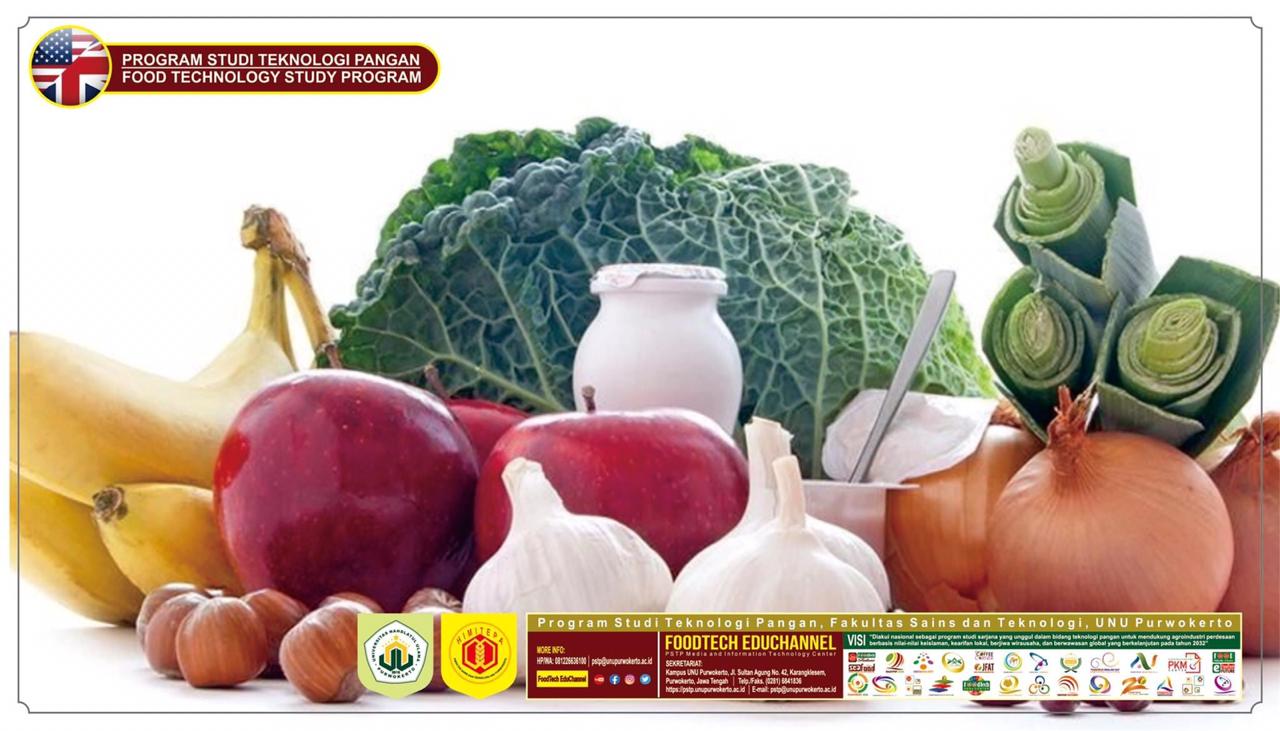e-Foodtech Future – In today’s competitive era, often various efforts have been made, so that the business of food products continues to run smoothly by producing products that are trending, ‘convenience’, labeled ‘organic’, and have health benefits such as the types of products classified as functional food. The claiming of product has health benefits is one way to increase added value and it turns out that the claim can be used to increase profit levels.
Kavadya Syska, Coordinator of the Food Technology Study Program, Faculty of Science and Technology, University of Nahdlatul Ulama Purwokerto, said that the increase in the functional food market today is also supported by increasing consumer awareness of their health. Consumer awareness of decreased fitness due to increased busyness, lack of exercise, lack of sleep, lack of regular eating and resting hours, stress due to workload or work environment, causes consumers to choose shortcuts to maintain their physical health, including choosing food that is functionally labeled , especially at the current Covid-19 pandemic.
On the other hand, information about functional food is also increasingly open, thus opening up opportunities for industries to fill this market with various types of products. In the market, many types of functional food product innovations have been developed, including those containing probiotics, prebiotics, or a combination of them.
Prebiotics are natural compounds in food that cannot be digested by the intestine, serving as a supplement to encourage the growth of good microorganisms in the digestive system. Prebiotics are useful for improving digestive health and potentially increasing calcium absorption. Prebiotics include fructooligosaccharides such as inulin and galactooligosaccharides. Prebiotic sources are all around us, namely: bananas, shallots, garlic, leeks, asparagus, artichokes, soybeans and wheat, fruits, legumes, and leeks.
Probiotics are living microorganisms or good bacteria that are naturally present in the intestine. This good culture helps balance the flora in the intestine. Its function is for overall health, good digestion and boosting the immune system. Probiotics are used to help deal with irritable bowel syndrome. Some probiotic strains can help prevent certain allergic symptoms, reduce symptoms of lactose intolerance and more. The term Probiotics is introduced to the general public through the food and beverage supplement industry, when in fact we have obtained these good bacteria since we were born. Probiotics can be found in food products, such as yogurt and kimchi, as well as some supplements in the form of drinks, capsules, or powder. While prebiotics can be found in wheat, soybeans, and vegetables and fruit, such as garlic, onions, leeks, asparagus, and bananas.
Probiotics and prebiotics have several health benefits, including:
• Helps to overcome digestive disorders, such as diarrhea and constipation.
• Reduces inflammatory bowel symptoms.
• Prevent diarrhea related to antibiotic use.
• Maintain digestive tract health.
• Helps overcome skin diseases, such as eczema.
• Maintain a healthy urinary tract and female area.
• Prevents allergies, colds, and upper respiratory tract infections.
• Maintain oral health.
Currently, synbiotic supplement products are also available, which are a combination of prebiotics and probiotics. When you want to consume probiotics or prebiotics, you should choose products that contain prebiotics and high fiber content, because this product is good for intestinal health. In addition to consuming probiotics or prebiotics, also complete a healthy diet by eating nutritionally balanced foods. Avoid high-sugar and high-fat food intake, because it can cause the growth of harmful bacteria that can potentially cause disease.
Sources: interviews and references analysis
Food Technology, UNU Purwokerto: Creative, Innovative, Fantastic
Food Technology, UNU Purwokerto: Developing Creative and Innovative Future


Leave a Reply